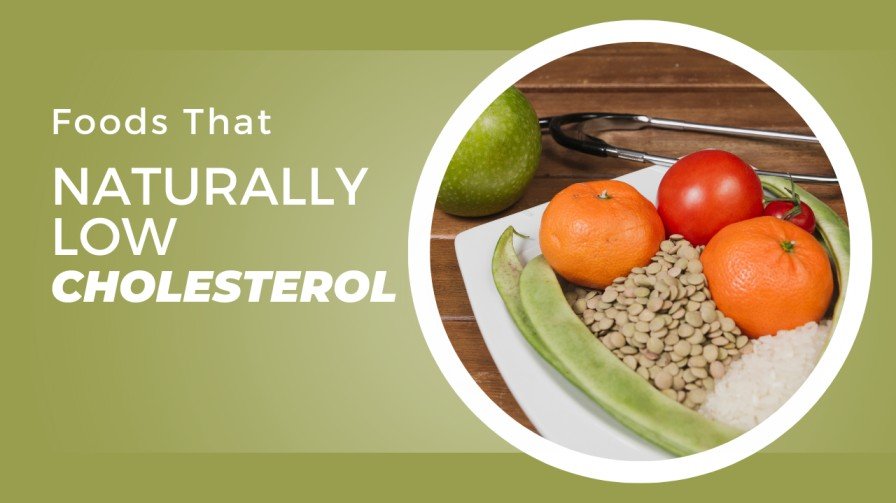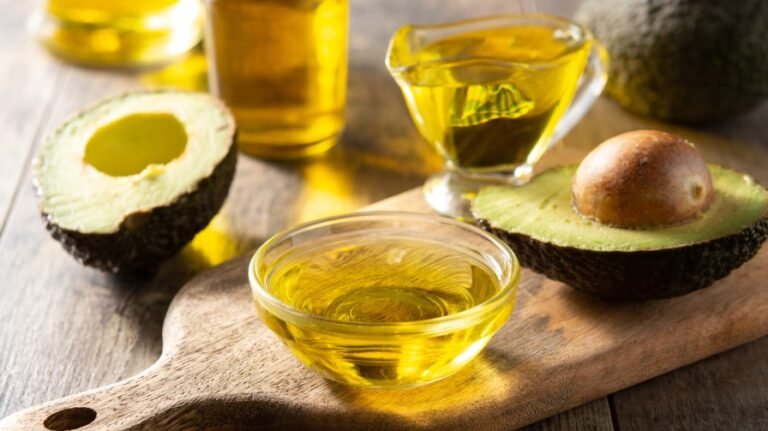Foods That Naturally Lower Cholesterol: An In-Depth Exploration for Optimal Heart Health

Cholesterol is a vital substance within the body, essential for building cell membranes, producing hormones, and synthesizing vitamin D. Yet, when levels of low-density lipoprotein (LDL), commonly known as “bad cholesterol,” surge beyond healthy limits, they can initiate a cascade of health issues, including atherosclerosis, heart attacks, and strokes. Luckily, nature offers a diverse and delicious array of foods that, when incorporated mindfully into one’s diet, can help regulate cholesterol levels effectively and sustainably.
In this comprehensive guide, we will examine an assortment of foods renowned for their cholesterol-lowering properties, delving into their unique nutrients, mechanisms of action, and practical ways to enjoy them.
Oats and Barley: The Fiber-Rich Foundations of Cholesterol Control
Soluble fiber is the secret weapon contained abundantly in oats and barley. This type of fiber, unlike insoluble fiber, dissolves in water to form a thick, gel-like substance in the intestines. This gel binds to cholesterol particles—particularly LDL cholesterol—and prevents their absorption into the bloodstream. Instead, the cholesterol is excreted from the body naturally.
Clinical studies consistently show that consuming just three grams of soluble fiber daily can reduce LDL cholesterol by 5 to 10 percent. Incorporating a hearty bowl of oatmeal at breakfast or using barley as a base for soups, stews, and salads can provide this heart-healthy fiber dose effortlessly. Additionally, these whole grains are packed with vitamins, minerals, and antioxidants, enhancing their overall cardiovascular benefits.
Nuts: Nutrient-Dense Allies in the Fight Against Bad Cholesterol
Nuts are small but mighty champions when it comes to heart health. Almonds, walnuts, pistachios, cashews, and other varieties contain an impressive mix of monounsaturated and polyunsaturated fats, fiber, and plant sterols—natural compounds that resemble cholesterol and compete for absorption in the digestive tract. This competition reduces the amount of cholesterol entering the bloodstream.
Beyond fat content, nuts deliver magnesium, potassium, vitamin E, and antioxidants that help reduce oxidative stress, improve endothelial function (the lining of blood vessels), and decrease inflammation—all crucial factors in maintaining arterial health. Consuming a small handful (about 1 ounce or 28 grams) daily can significantly improve cholesterol profiles and reduce cardiovascular risk. The versatility of nuts means they can be eaten raw, roasted, or incorporated into dishes such as salads, yogurt, and baked goods.
Fatty Fish: Omega-3 Fatty Acids for Heart Protection
The benefits of fatty fish like salmon, mackerel, sardines, and herring extend well beyond their rich, savory flavor. They are excellent sources of omega-3 fatty acids—specifically EPA (eicosapentaenoic acid) and DHA (docosahexaenoic acid). These essential fats are renowned for their anti-inflammatory properties, their ability to lower triglyceride levels, and their role in raising HDL cholesterol.
Omega-3s help stabilize heart rhythms, reduce blood clotting, and decrease blood pressure, thus significantly lowering the risk of cardiovascular events. Most health organizations recommend eating fatty fish at least twice per week. For those who don’t consume fish regularly, omega-3 supplements derived from fish oil or algae are alternatives, but whole-food sources offer additional nutrients and benefits.
Beans and Legumes: The Unsung Fiber-Rich Heroes
Beans, lentils, chickpeas, and other legumes provide a potent combination of soluble fiber and plant-based protein that works synergistically to lower cholesterol. Their fiber content binds cholesterol in the digestive system, reducing absorption and promoting elimination. At the same time, the high protein content supports muscle health without the saturated fats found in some animal proteins.
Studies have shown that eating about 1.5 cups of cooked beans or legumes daily can reduce LDL cholesterol by up to 10 percent. Furthermore, these foods have a low glycemic index, helping to stabilize blood sugar and reduce insulin spikes, factors indirectly related to heart health. From hearty chili to creamy hummus and spicy lentil soups, legumes can be creatively included in countless recipes.
Fruits: Nature’s Sweet and Heart-Healthy Treats
Fruits such as apples, grapes, strawberries, blueberries, and citrus fruits like oranges and grapefruits are abundant in pectin, a soluble fiber that binds cholesterol and reduces LDL levels. These fruits also contain a plethora of antioxidants, including flavonoids, vitamin C, and polyphenols, which protect blood vessels from oxidative damage and reduce inflammation—key drivers of heart disease.
Eating a colorful variety of fruits daily not only supports cholesterol management but also aids in weight control and improves overall nutritional intake. Whether eaten fresh, blended into smoothies, or added to cereals and salads, fruits are a tasty and natural way to promote cardiovascular well-being.
Vegetables: The Cornerstones of Cardiovascular Defense
Vegetables—especially those with vibrant colors and leafy textures like spinach, kale, Swiss chard, broccoli, and Brussels sprouts—offer fiber, vitamins (A, C, K), minerals (potassium, magnesium), and powerful antioxidants that collectively shield the heart and blood vessels from damage.
Fiber in vegetables binds cholesterol and encourages its removal, while antioxidants reduce inflammation and oxidative stress—factors that contribute to arterial plaque formation. Cruciferous vegetables, in particular, contain compounds such as sulforaphane that may improve cholesterol metabolism and support liver function, where cholesterol is processed and eliminated.
Olive Oil: The Mediterranean Elixir for Healthy Cholesterol
Extra virgin olive oil stands out as a heart-healthy fat due to its high content of monounsaturated fatty acids (especially oleic acid) and potent antioxidants like polyphenols. Studies consistently associate olive oil consumption with lower LDL cholesterol, higher HDL cholesterol, and improved endothelial function.
Its anti-inflammatory properties further protect arteries from damage and promote healthy blood flow. Using olive oil in place of butter or other saturated fats can make a significant difference in cholesterol management. Whether used in salad dressings, drizzled over cooked vegetables, or as a base for sautéing, olive oil is a flavorful and beneficial addition to any diet.
Avocados: Creamy, Nutrient-Packed Heart Protectors
Avocados are uniquely rich in monounsaturated fats and soluble fiber, both essential for lowering LDL cholesterol while raising HDL cholesterol. They also provide potassium, which helps regulate blood pressure, and antioxidants such as lutein and zeaxanthin that support vascular health.
Eating half an avocado daily has been shown to reduce LDL cholesterol and improve overall lipid profiles. Their creamy texture makes avocados an excellent substitute for less healthy fats in spreads, dips, and dressings. Plus, their versatility means they can be enjoyed in salads, smoothies, sandwiches, and even desserts.
Soy Products: Plant-Based Proteins with Cardiovascular Benefits
Soybeans and soy-based foods like tofu, tempeh, soy milk, and edamame are notable for their high-quality protein and isoflavones—plant compounds that can modestly reduce LDL cholesterol levels. The U.S. Food and Drug Administration (FDA) acknowledges that consuming 25 grams of soy protein daily, as part of a diet low in saturated fat and cholesterol, may reduce the risk of heart disease.
Soy foods offer a plant-based protein alternative that supports heart health while providing essential amino acids. Their versatility allows for inclusion in a wide range of dishes, from stir-fries and soups to smoothies and baked goods.
Whole Grains: Sustained Energy and Heart Protection
Whole grains such as whole wheat, brown rice, quinoa, barley, oats, and bulgur are rich in fiber, B vitamins, and minerals like magnesium and selenium. The fiber content, particularly soluble fiber, aids in lowering LDL cholesterol by reducing its absorption and enhancing its excretion.
Replacing refined grains with whole grains not only improves cholesterol levels but also contributes to better blood sugar control, weight management, and digestive health. Whole grains offer a sustained release of energy and keep you feeling fuller longer, making them an essential part of a heart-healthy lifestyle.
The Bigger Picture: Lifestyle and Dietary Synergy
While these cholesterol-lowering foods are powerful tools on their own, their effects multiply when combined with a healthy lifestyle. Regular physical activity, maintaining a healthy weight, avoiding tobacco smoke, managing stress, and limiting intake of saturated and trans fats complement the benefits of these foods.
Choosing a diet abundant in these natural cholesterol-lowering foods—rather than relying solely on medication—can improve heart health and reduce the risk of chronic disease over the long term.
Final Thoughts
Nature’s bounty offers a delicious and effective means to manage cholesterol and safeguard heart health. Incorporating a diverse array of oats, nuts, fatty fish, legumes, fruits, vegetables, olive oil, avocados, soy products, and whole grains into your daily diet creates a symphony of nutrients working together to lower LDL cholesterol, raise HDL cholesterol, and reduce inflammation.
If you’re interested, I can help you design personalized meal plans, suggest recipes, or provide cooking tips to make these foods an enjoyable part of your routine.






